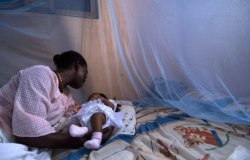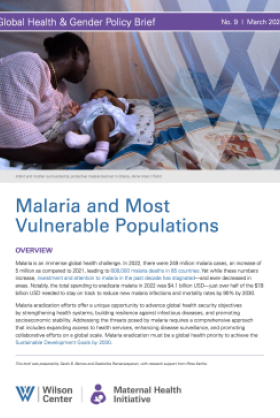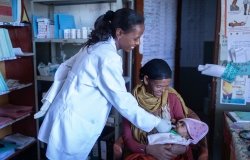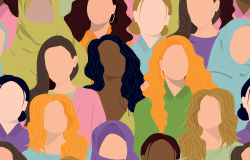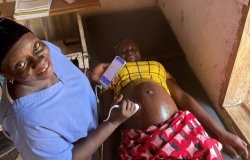Improving Health Care in Africa
NOVEMBER 2006--Discussion Deepens the Understanding of Challenges Facing Health Service Delivery in Sub-Saharan Africa
"Africa is often defined by its problems, not by its opportunities and its gifts," said Robert Mallett, vice president of Corporate Affairs at Pfizer Inc. at a November 2, 2006, discussion organized by the Global Health Initiative and the Africa Program. Opportunities for both economic and social improvements in sub-Saharan Africa are tremendous. For Africa to achieve this great potential, improving health must be a top priority. Health care systems face daunting challenges and most Africans depend on public health services that are hobbled by inadequate budgets, under-investment in physical infrastructure, and insufficient numbers of trained health care providers. Most African countries also lack developed and well-functioning private markets for health care, thus adding to the burdens borne by already hard-pressed public systems. These institutional weaknesses make it difficult for countries to respond effectively to pandemic infectious diseases such as HIV/AIDS, tuberculosis, and malaria, as well as to the non-communicable diseases that increasingly affect patients in Africa and throughout the developing world.
This discussion, made possible with the support of Pfizer, Inc. brought to the table the most pressing issues in the public and private provision of health care in Africa in order to highlight opportunities for expanding access to high quality health care throughout Africa; identify practical solutions to those challenges; and strengthen and expand collaboration between the public and private sectors.
Three discussion papers were commissioned for this meeting. Victor Barbiero of the George Washington School of Public Health and Health Services, Dan Kaseje of the Tropical Institute of Community Health and Development in Africa, and Patrick Osewe of the World Bank presented their papers on future trends in African health, improving health efficiency, and expanding public-private sector partnerships, respectively. The webcast is now available. Please follow the link to the right for the event posting. The Global Health Initiative will post a short policy brief, as well as the three papers commissioned for this meeting in the near future.
Related Links
Documents & Downloads
Related Programs

Maternal Health Initiative
Life and health are the most basic human rights, yet disparities between and within countries continue to grow. No single solution or institution can address the variety of health concerns the world faces. By leveraging, building on, and coordinating the Wilson Center’s strong regional and cross-cutting programming, the Maternal Health Initiative (MHI) promotes dialogue and understanding among practitioners, scholars, community leaders, and policymakers. Read more

Africa Program
The Africa Program works to address the most critical issues facing Africa and US-Africa relations, build mutually beneficial US-Africa relations, and enhance knowledge and understanding about Africa in the United States. The Program achieves its mission through in-depth research and analyses, public discussion, working groups, and briefings that bring together policymakers, practitioners, and subject matter experts to analyze and offer practical options for tackling key challenges in Africa and in US-Africa relations. Read more

